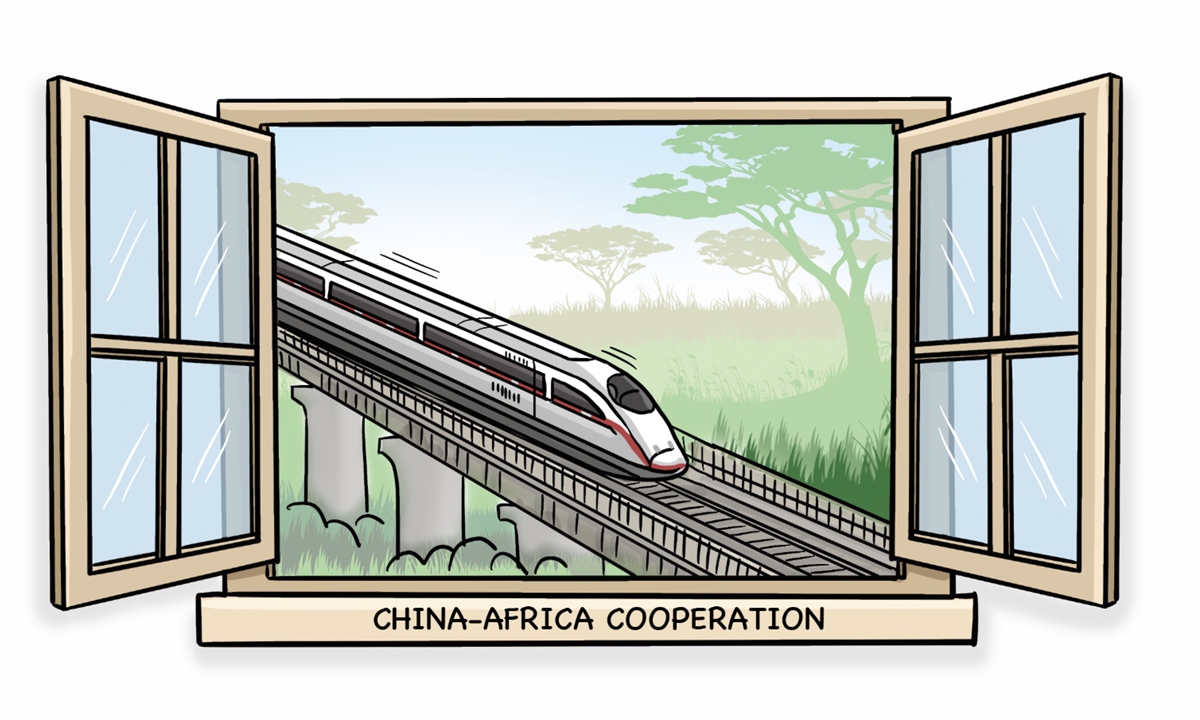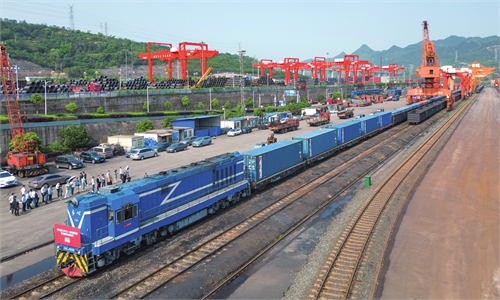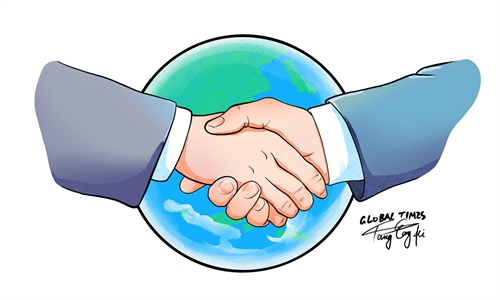While Africa-West relations become more contentious, China demonstrates an understanding of African values, needs

Illustration: Xia Qing/GT
For Africa, many things were expected from Washington in 2023: a visit from US President Joe Biden, an electric vehicle value chain memorandum of understanding with Zambia and the Democratic Republic of the Congo expected to evolve into an actual contract, and a three-year $55 billion fund committed to Africa starting from this year. However, it seems that none of these has been realized. In fact, this is how the West typically treats Africa - with one empty promise after another.
At the same time, China is increasingly excelling where the West has failed as the relationship between Africa and the Global North is becoming increasingly contentious. Rooted in colonialism and the exploitation of Africans and Africa's rich resources, the relationship between the West and African countries is deteriorating.
A number of Western countries have come under fire for the turmoil in West and Central Africa where a record seven military coups have occurred in the last four years alone. Since 1990, 78 percent of the 27 coups in Sub-Saharan Africa have occurred in Francophone countries. Meanwhile, China continues to make significant progress, particularly in West Africa, where there has been significant economic assistance from the Eastern development giant.
In Kenya, citizens have become increasingly wary of relations with the West and have strongly expressed these views on various social media platforms. On the continent, people are growing tired and frustrated with how the West has continued to view Africa as a "begging bowl" continent, grateful for whatever little crumbs they can receive.
These sentiments are rooted in Africa's painful history with the West. When colonialism defined Africa-Western countries relations, China stood firm and supported Africa's liberation movements, especially in the 1960s and 1970s, giving crucial and much-needed aid to newly independent African countries.
China has taken the most logical, sustainable path in its dealings with countries in Africa. It does not seek to interfere, strong arm, subdue and suppress the potential on the continent but to harness the power that lies in Africa, which is still largely a sleeping giant slowly waking up from its slumber through a partnership of equals with China.
The West has been heavily criticized for its interference with African politics and more so during the electioneering periods and has even been accused of influencing elections behind the scenes. This has created fears and concerns that elections in Africa are not free and fair.
Meanwhile, China has pursued a much different route, not one rooted in colonialism and shades of imperialism that have become increasingly obvious.
China's pragmatic approach to relations with Africa is the foundation of the thriving China-Africa community of a shared future. The Eastern nation has acted in good faith, upholding sincerity, equality and friendship.
The win-win cooperation is anchored on a shared responsibility where both sides build on their core businesses and shared interests, while addressing development concerns side-by-side. This has further boosted coordination on critical matters at both the regional and international levels.
This approach is much welcome for Africa which has long been dismissed and relegated to the periphery of bilateral and multilateral discussions and engagements, even those that affect Africa the most. Today, Africa's voice has been amplified due to the platform that China offers thanks to the country's status as a powerful global player.
When developing the relationship with the African continent which has the most developing countries, China has managed to leverage a shared past to harness development goals that have ushered a new ground in China-Africa relations.
China's foreign policy is anchored on strong economic development while the West is more focused on political influence and dominance. China's no-interference policy and respect for sovereignty have ushered Africa into a new era of accelerated growth and development.
As a result, China-Africa's commercial engagement has only broadened and intensified and has been officially formalized through the Belt and Road Initiative, which has become a booster for Africa's economic development.
Meanwhile, the Western influence in Africa at best remains static, but in most cases, there are deep problems that have led Africa to increasingly look East. For instance, in the last 20 years, China has emerged as sub-Saharan Africa's largest individual trading partner. An estimated one-fifth of sub-Saharan Africa's total export goods are imported into China.
In tandem, China is also the single largest source of much-needed imports for African countries, including highly affordable popular products. However, the West has a misguided approach of dictating what is of great priority for Africa and this has only caused a backlash. Africa is guided by a set of unique values steeped in culture and traditions.
China has demonstrated an understanding of these values and just as important, what Africa needs to become a fast-moving, fast-growing developing continent. Due to this understanding, China will continue to hit all the right notes in its interaction with the African continent.
The author is a Kenya-based journalist. opinion@globaltimes.com.cn



